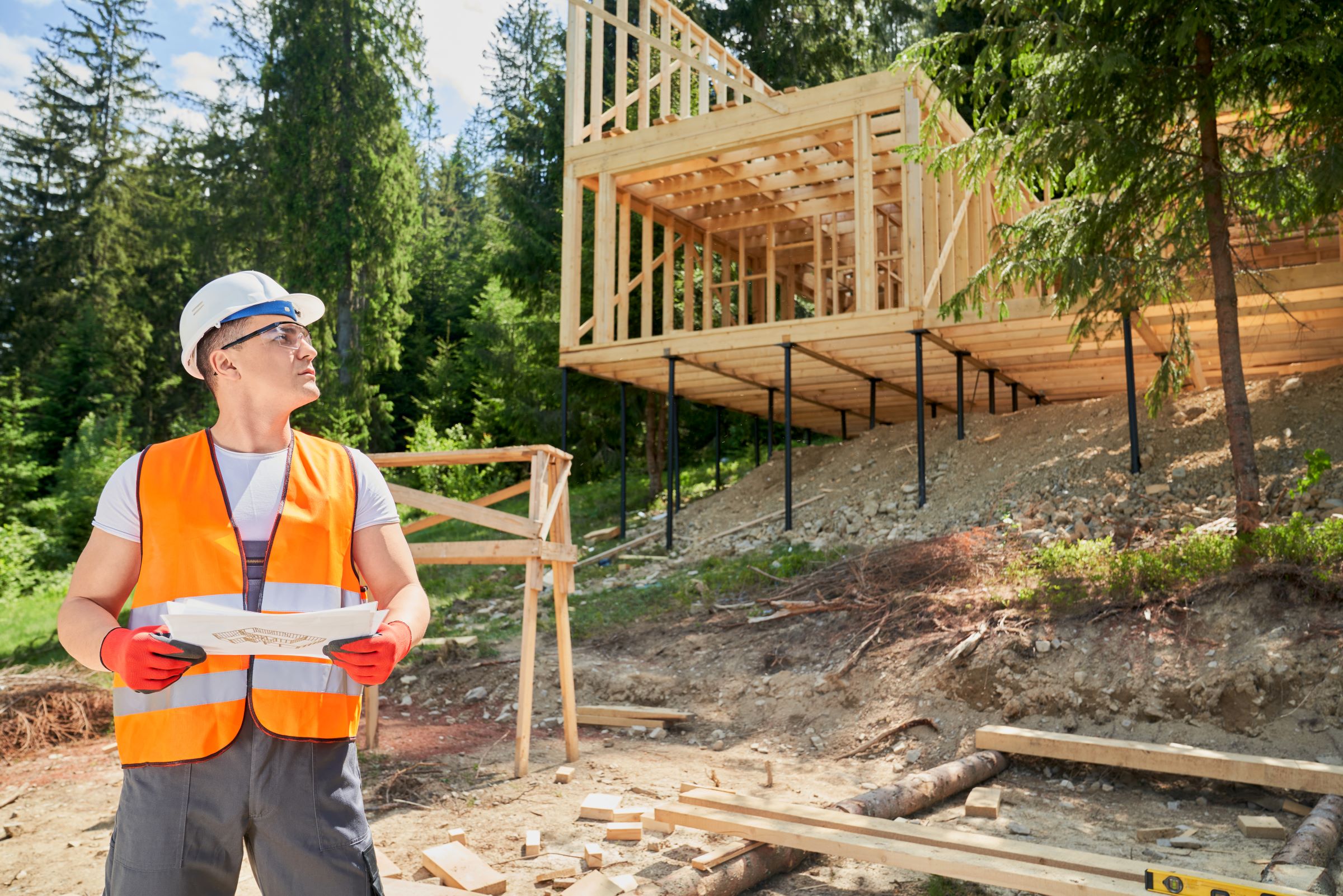Housing network calls to remove nutrient neutrality laws in a radical shake-up of the UK planning system
The Housing Forum claims the UK is 'the most difficult place to find a home in the developed world' in its latest report, suggesting nutrient neutrality laws should be removed

The Housing Forum's latest report calls for the removal of nutrient neutrality rules from the planning system.
The report titled "Streamlining Planning to Build More Homes" claims that other agencies are better suited to address this issue.
Housing Secretary Michael Gove has signalled his intent to eliminate these rules through new legislation due to its negative impact on building new homes
The Housing Forum's report highlights the imperative need for enhancements in the existing planning system with this news coming in the wake of the House of Lords blocking plans to relax nutrient neutrality laws.
What is nutrient neutrality?
Nutrient neutrality involves ensuring that proposed developments make no additional contribution of nutrients to rivers, estuaries, and wetlands, and in some cases, may even reduce the existing nutrient load.
Typically originating from agriculture and sewage treatment works, excess nutrients, as highlighted in a January 2022 report from the Environmental Audit Committee (EAC), are not identified as a significant concern in homebuilding.
In cases where nutrient levels are elevated, Natural England may designate an area unsuitable for development. High nutrient levels can lead to seasonal algae blooms, impacting the growth, distribution, and biodiversity of food and oxygen within the intricate river ecology network.
Get the Homebuilding & Renovating Newsletter
Bring your dream home to life with expert advice, how to guides and design inspiration. Sign up for our newsletter and get two free tickets to a Homebuilding & Renovating Show near you.
This concern is particularly crucial in conservation areas protected by European Habitats Directives, where specific planning conditions must be met to obtain planning permission.

Planning system 'is not working as well as it should be'
The Housing Forum's latest report advocates for the removal of nutrient neutrality rules from the planning system.
The report also encourages local authorities to collaborate closely with developers and adopt flexible approaches to find mitigation solutions.
The Housing Forum's report emphasises the need for improvements in the current planning system with Shelagh Grant, Chief Executive of The Housing Forum claiming it "is not working as well as it should be".
Recommendations include elevating the status of planners in councils, allocating more resources to planning and recruitment, and promoting the use of permitted development rights by local authorities to expedite the development process and alleviate the workload on planners.
Plans to relax nutrient neutrality blocked by House of Lords
In September 2023, the House of Lords thwarted government plans to ease nutrient neutrality laws aimed at promoting homebuilding.
The government's initiative to remove these laws, criticised by developers for impeding the construction of 145,000 homes across 74 local authorities, faced strong opposition.
According to the Home Builders Federation (HBF), numerous self build projects were at a standstill due to river pollution, causing planning delays.
The HBF warned of significant consequences if nutrient neutrality concerns were not addressed, estimating that as many as 120,000 new homes annually, constituting half of all planned construction, were being halted.
Despite these concerns, the proposed changes to nutrient neutrality laws were defeated in the House of Lords, impacting the landscape of homebuilding.
These planning reforms to nutrient neutrality laws, it was hoped, would cause a rise in those gaining permissions and allow self builders to get to work on their projects more easily and faster.
Why was it defeated?
The government planned to relax these regulations by means of an amendment within the Levelling Up and Regeneration Bill, which was passed in November, 2023.
However, the vote regarding the relaxing of nutrient neutrality rules in the Labour-dominated House of Lords was defeated by 203 votes to 156, a majority of 47.
The changes to nutrient neutrality laws now cannot be passed through the Levelling Up Bill, delaying, or even potentially ending any chance of their removal.
Angela Rayner spearheaded the opposition to this plan in her role as the shadow levelling up secretary. Rayner stated: "The Tories have utterly failed in their attempt to score cheap political points with a flawed plan.
"We are prepared to collaborate with the government, housebuilders, and environmental groups to reach a viable solution for constructing the necessary homes."
Michael Gove, the Levelling Up Secretary, countered by accusing Labour of instructing their peers to obstruct "the dream of homeownership for thousands of families... despite boasting that Labour would be the party of the builders not the blockers."

How would this relaxation have benefitted self builders?
The relaxation of nutrient neutrality laws aimed to simplify the homebuilding process and remove barriers when gaining planning for self builders and developers.
Concerns over nutrient neutrality has left self builders “virtually powerless” when it comes to building their home, according to Merry Albright, creative director of Border Oak and co-chair of the Herefordshire Construction Industry Lobby Group (HCILG).
She claims self builders who already had planning permission to build on their plots haven't been able to break ground in areas where housing development has been shut down.
“For those who’ve already bought their plots, they’re stuck - especially if the planning permission has run out, and it’s not a given that they’re going to get planning permission again," said Albright.

News Editor Joseph has previously written for Today’s Media and Chambers & Partners, focusing on news for conveyancers and industry professionals. Joseph has just started his own self build project, building his own home on his family’s farm with planning permission for a timber frame, three-bedroom house in a one-acre field. The foundation work has already begun and he hopes to have the home built in the next year. Prior to this he renovated his family's home as well as doing several DIY projects, including installing a shower, building sheds, and livestock fences and shelters for the farm’s animals. Outside of homebuilding, Joseph loves rugby and has written for Rugby World, the world’s largest rugby magazine.
